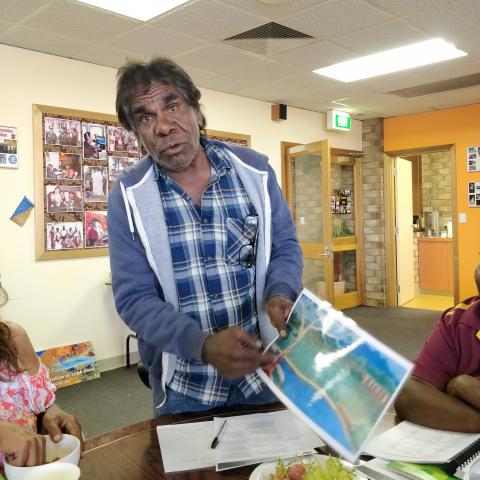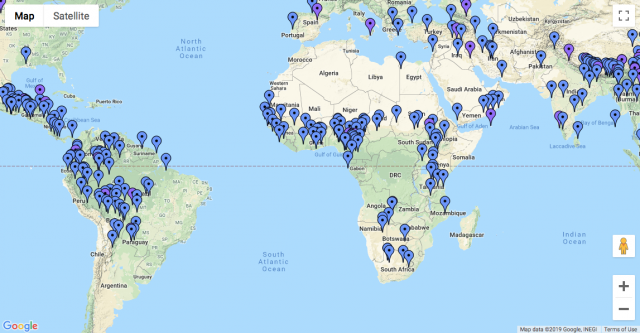Resources on Indigenous Languages
Maps
Native Land Digital. A tool to identify the first inhabitants of many parts of the globe. Includes information about languages, territories, and treaties.
Langscape. An online resource for mapping a wide range of information about the world's languages. Langscape allows users with interests ranging from recreational to academic to discover the world's languages via interactive tools and access to established research.
Voices of Indigenous Revitalization Efforts
Rising Voices. Rising Voices aims to help bring new voices from communities speaking endangered or indigenous languages to the global conversation by providing training, resources, microgrant funding, and mentoring to communities that want to tell their own digital story using participatory media tools.
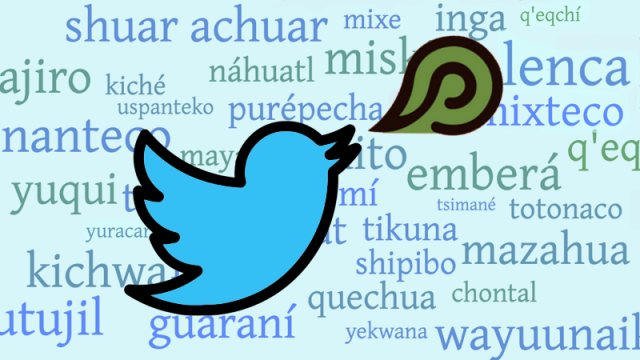
Sharing Voices of Indigenous Language Digital Activists. For 2019 a rotating roster of 50 indigenous language digital activists from Latin America is taking control of the @ActLenguas (Language Activism) Twitter account to tell stories of language revitalization. Picture on right is their logo.
Support for Indigenous Revitalization Efforts
Centro Editorial de Literatura Indígena, Asociación Civil / Center for Native Language Publishing. CELIAC is dedicated to the revitalization of indigenous languages of the Americas.
Interdisciplinary Centre for Social and Language Documentation (CIDLeS). Dedicated to the documentation and preservation of the linguistic and cultural heritage in Europe.
Living Languages. Their mission is to create a positive input to Australian Aboriginal and Torres Strait Island community resilience, health, wellbeing and cultural identity through enabling the sustainability of Indigenous languages. Picture on left is from a Living Languages workshop.
The Endangered Languages Fund. ELF supports endangered language preservation and documentation projects by funding grants to individuals, tribes, and museums.
The Language Conservancy. Helps prevent the extinction of languages by raising funds, increasing international public awareness of the language-loss crisis, and providing support to organizations and communities engaged in revitalizing their languages
Natives4Linguistics. Project to broaden participation of Native Americans within linguistics by 1) bringing Native Americans to Linguistic Society of America meetings, and 2) developing and promoting strategies to better integrate Native American needs and values about language into linguistic science.
Examples of Community-Centered Language Resources
Karuk Language Resources on the Web. Provides links to Karuk language information and resources, including language classes, a map of the Karuk Ancestral Territory with audio files of some town names, a link to the online Karuk dictionary, and more. Picture on right is Karuk meme by Susan Gehr, from her Instagram account. Translation: 'I had fun once. It was awful.'
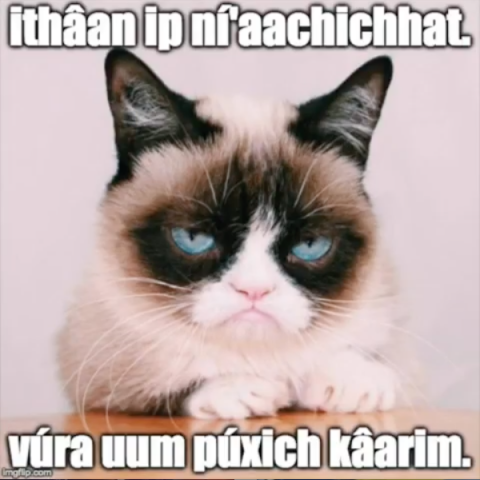
Miami-Illinois Digital Archive. The Miami-Illinois Digital Archive (MIDA) was created to assemble all known primary language sources into one location in order to facilitate further research and analysis of the Miami-Illinois language, or Myaamia.
myaamiaatawaakani | Myaamia Dictionary. Dictionary that translates between English and Myaamia (the Miami-Illinois language).
Cherokee Electronic Dictionary Project. Critical to the continuing revitalization of the Cherokee language is the development of a "Cherokee Dictionary" of all Cherokee stems, affixes, words and phrases in an easy-to-access database.
Passamaquoddy People: At Home on the Ocean and Lakes. Materials ranging from 1890 wax cylinder recordings to recent videos, intended both as a resource for community members and to share Passamaquoddy history and culture with others.
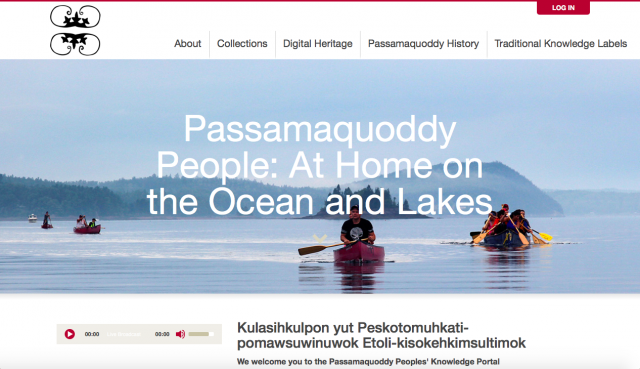
Examples of Regional and Global Language Archives
Archive of the Indigenous Languages of Latin America (AILLA)
Endangered Languages Archive (ELAR) - the map at left shows ELAR holdings by location
Native American Languages Collection at the Sam Noble Museum of Natural History
Pacific and Regional Archive for Digital Sources in Endangered Cultures (PARADISEC)
Center for Native American and Indigenous Research, Library of the American Philosophical Society
Other Collections of Indigenous Language Materials
Atlas of Endangered Alphabets. A large collection of alphabets from around the world. Picture on right is from this site; it shows Ditema Tsa Dinoko alphabet.
The Endangered Languages Project. Through this website, users can not only access information on endangered languages, but also submit information or samples in the form of text, audio or video files.
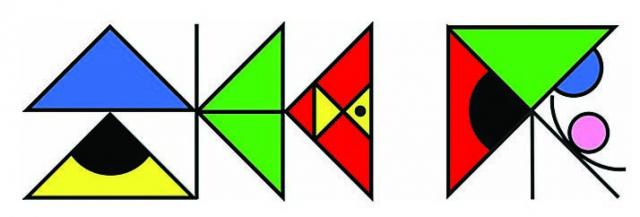
Wikitongues. An online site that collects videorecorded oral histories, so far from over 400 languages.
Google Earth: Celebrating Indigenous Languages. A collaboration with 55 Indigenous language speakers to share traditional greetings, favorite sayings and meaningful songs. Requires Chrome browser.
Indigenous Data Sovereignty
US Indigenous Data Sovereignty Network. Helps ensure that data for and about Indigenous nations and peoples in the US are utilized to advance Indigenous aspirations for collective and individual wellbeing.
First Nations Information Governance Centre. Home the OCAP principles, a policy on indigenous data sovereignty that is widely used (OCAP = ownership, control, access and possession).
Maiam nayri Wingara Aboriginal and Torres Strait Islander Data Sovereignty Collective. Formed to develop Aboriginal and Torres Strait Islander data sovereignty principles and to identify Aboriginal and Torres Strait Islander strategic data assets.
Te Mana Raraunga Māori Data Sovereignty Network. Driven by the vision "our data, our sovereignty, our future," it advocates for Māori rights and interests in data to be protected as the world moves into an increasingly open data environment.
Technology Resources
Mukurtu. A free, open source platform built with indigenous communities to manage and share digital cultural heritage.
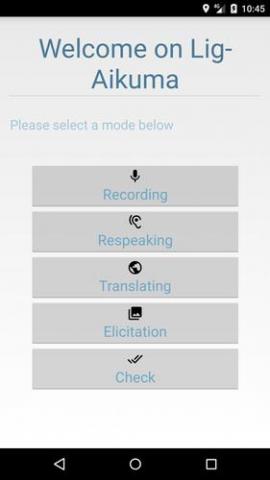
Aikuma Project. Develops mobile apps to help community members record their languages.
User-Centered Design of Language Archives. Information and resources about designing language archives to ensure their usefulness and ease of use for their users.
Miscellaneous
Digital Endangered Languages and Musics Archives Network. DELAMAN is an international network of archives of data on linguistic and cultural diversity, in particular on small languages and cultures under pressure.
Throw a Language Party! Information about how to host a multi-language storytelling show to celebrate the UN International Year of Indigenous Languages 2019.
Tribalingual. The site connects local cultural practitioners and speakers of less widely spoken languages with people seeking unique, immersive experiences - online. Whether they're home cooks, world class dance performers, or the some of the world's last storytellers, the teachers all share one thing in common - a passion to share their culture with people all over the world.
